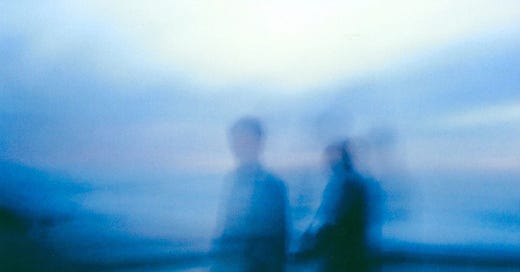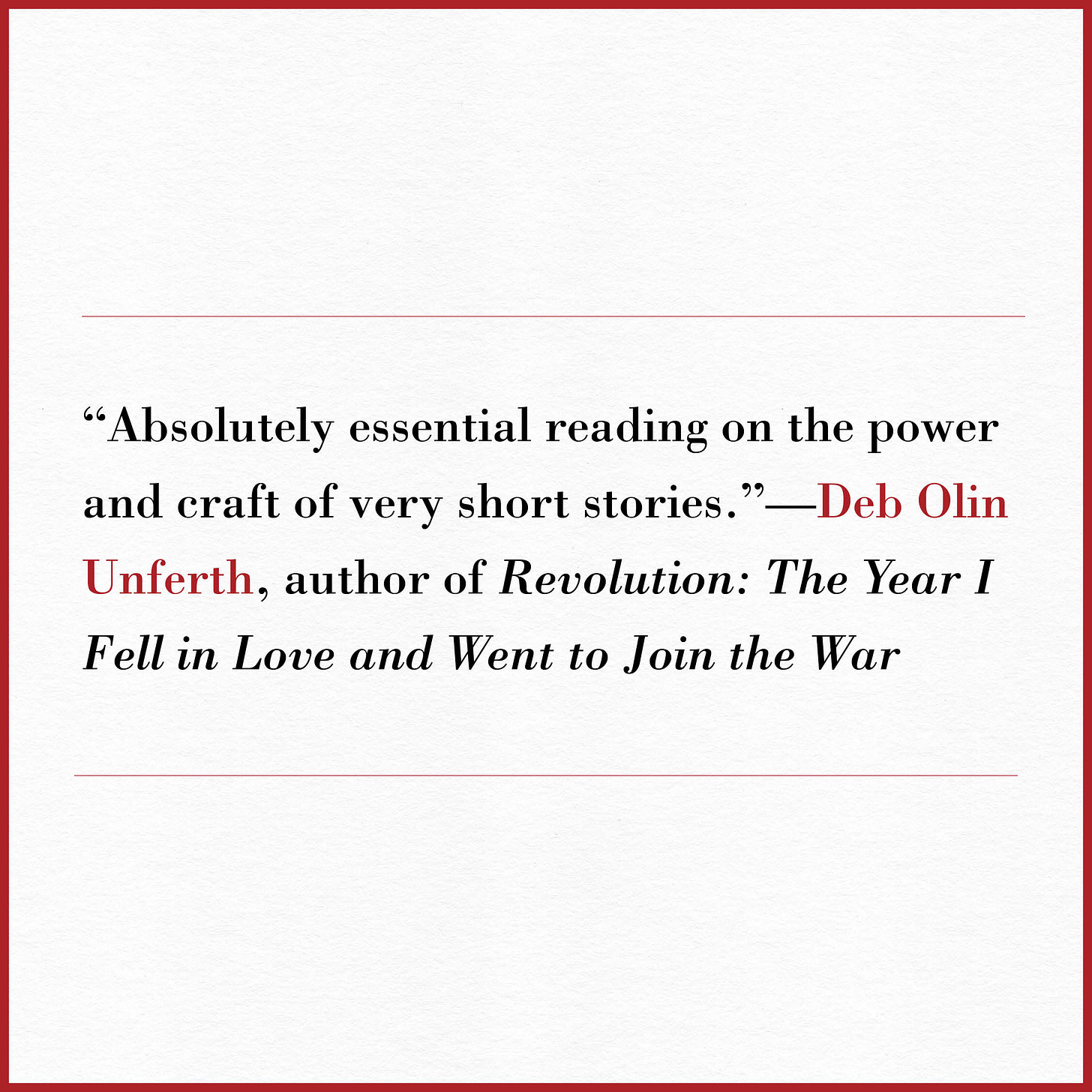We live in in-between spaces. We live in the liminal.
We like concrete definitions of things. We have notions of solidity and permanence and singularity. But everything changes, of course. Life is about living in the shifts, the pivots, the ambiguous, the tenuous.
To claim clarity is to claim authority, to make the world definite and sure, to rule. To live and write with the “mystery of clarity”—a phrase I’ve been obsessed with since I interviewed Charif Shanahan on my Write-minded podcast—is to explore the shadows and crevices, the places where a presence turns into an absence, where a toe dips into the water, except perhaps the water isn’t there.
I call Charif a “poet of the ineffable.”
In fact, you might say that the ineffable is Charif’s clay. His poetry makes the idea of clarity a murky endeavor, but in the nuances of his lyricism, you get a sense of a deeper truth. Ambiguous as it might be. But that is the point—to experience ambiguity, not name (and thereby own) it for clarity's sake.
I love the title of Charif’s new collection of poetry, Trace Evidence. According to Wikipedia, “trace evidence” is “created when objects make contact, and material is transferred. This type of evidence is usually not visible to the eye and requires specific tools and techniques to be obtained. Due to this, trace evidence is often overlooked, and investigators must be trained to detect it.”
The “investigators” in this case are writers. Poetry is the tool of detection.
Charif’s poem “[‘Mulatto’ :: ‘Quadroon’]” starts with a simple declaration: “I want to tell you what for me it has been like.” But then the poem shows how that’s an impossible story to tell. “What it has been like” can only be communicated through the challenges and inadequacies of language. The poem traces how he is “a part” and “apart” at the same time—how he appears on the outside but remains within and appears within but remains on the outside.
All is a knot. The self is inherently layered, nuanced, a contradiction, without solid ground. In Charif’s case specifically, the intricacies of mixed-race identity, queer desire, and the legacies of anti-Blackness in the U.S. and abroad don’t have a home in language. A part is apart. A part is not part of.
Literature is the question minus the answer.
One of my favorite bits of writing advice comes from Roland Barthes, who said that “Literature is the question minus the answer.” That’s almost a zen koan: how do you write a story that opens up uncertainty instead of providing the firm ground of an answer, and then why is that good? Don’t we want our questions to be answered in the books we read?
My friend Maud Casey wrote a book, The Art of Mystery, and it’s not about the genre of mystery, which she says is about finding the answers, but about finding the questions, so she’s in the Barthes camp.
In an interview with the New England Review, Maud says, ”Mystery has always been the draw for me, from the very beginning, before I could even name it. The seduction of the in-between, what isn’t visible, the world behind the world—that’s where it’s at for me. Who are you who am I where are we going what is this feeling inside of me why why why what does it all mean? I wonder this all day long. Writing, reading, don’t answer these questions, but they allow me to ask them, and offer the company of other minds asking them.”
It’s such an interesting idea: the experience of the mystery itself is the answer, and there is perhaps a greater power to residing in the mystery, a greater comfort even, especially when we’re in the company of other doubters, our fellow writers and readers.
If a poem is really good, you can’t really say what it’s about.
Poetry is rooted in mystery in a way other types of writing aren’t. I read the poet Matthew Zapruder’s book Why Poetry a couple of years ago, and he says that, “Poetry is a constructed conversation on the frontier of dreaming.” I love that because it’s at once intentional in its construction, but it goes beyond consciousness—and it’s that “beyond consciousness,” that ineffability, that a good poem breathes into.
“If a poem is really good, you can’t really say what it’s ‘about,’” he says. A poem moves associatively, it traces the movement of our thought, so the experience of the poem is the purpose of the poem as much or more than any message.
This is an often overlooked benefit of writing: the ways it teaches you to see life through layers and nuances and counterpoints and contradictions. To see life in such a way is to hone humility, to open oneself up to other perspectives, to accept change.
The people who are banning books now see life through rules and orders based on fears and ignorance. They are creatures of narrow certitudes.
That’s why we need writing that embraces and explores the mysteries we live in—not to solve them, but to experience them.
It pains me to see humanities departments shrink. It pains me to see the art and practice of writing trivialized and dismissed. It pains me to see lives and history go unrecognized. We need to live in the question. Not to find answers, but to find clarity in the mystery.
Because a quote
“The most beautiful experience we can have is the mysterious. It is the fundamental emotion that stands at the cradle of true art and true science.”
—Albert Einstein
Because a writing prompt
Write about a moment when you were “a part” of things yet “apart.” How can you express that contradiction? How can you use the language of ineffability like it’s your clay to express such a moment?
Because I’m not asking you to buy my book
But Deb Olin Unferth has some nice words for it in case you want to buy The Art of Brevity.







